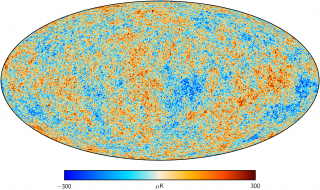Bibcode
Planck Collaboration; Ade, P. A. R.; Aghanim, N.; Angelakis, E.; Arnaud, M.; Ashdown, M.; Aumont, J.; Baccigalupi, C.; Balbi, A.; Banday, A. J.; Barreiro, R. B.; Bartlett, J. G.; Battaner, E.; Benabed, K.; Benoît, A.; Bernard, J.-P.; Bersanelli, M.; Bhatia, R.; Bonaldi, A.; Bonavera, L.; Bond, J. R.; Borrill, J.; Bouchet, F. R.; Bucher, M.; Burigana, C.; Cabella, P.; Cappellini, B.; Cardoso, J.-F.; Catalano, A.; Cayón, L.; Challinor, A.; Chamballu, A.; Chary, R.-R.; Chen, X.; Chiang, L.-Y.; Christensen, P. R.; Clements, D. L.; Colombi, S.; Couchot, F.; Coulais, A.; Crill, B. P.; Cuttaia, F.; Danese, L.; Davies, R. D.; Davis, R. J.; de Bernardis, P.; de Gasperis, G.; de Rosa, A.; de Zotti, G.; Delabrouille, J.; Delouis, J.-M.; Désert, F.-X.; Dickinson, C.; Donzelli, S.; Doré, O.; Dörl, U.; Douspis, M.; Dupac, X.; Efstathiou, G.; Enßlin, T. A.; Finelli, F.; Forni, O.; Frailis, M.; Franceschi, E.; Fuhrmann, L.; Galeotta, S.; Ganga, K.; Giard, M.; Giardino, G.; Giraud-Héraud, Y.; González-Nuevo, J.; Górski, K. M.; Gratton, S.; Gregorio, A.; Gruppuso, A.; Harrison, D.; Henrot-Versillé, S.; Herranz, D.; Hildebrandt, S. R.; Hivon, E.; Hobson, M.; Holmes, W. A.; Hovest, W.; Hoyland, R. J.; Huffenberger, K. M.; Huynh, M.; Jaffe, A. H.; Juvela, M.; Keihänen, E.; Keskitalo, R.; Kisner, T. S.; Kneissl, R.; Knox, L.; Krichbaum, T. P.; Kurki-Suonio, H.; Lagache, G.; Lähteenmäki, A.; Lamarre, J.-M.; Lasenby, A.; Laureijs, R. J. et al.
Bibliographical reference
Astronomy and Astrophysics, Volume 536, id.A14
Advertised on:
12
2011
Journal
Citations
66
Refereed citations
62
Description
Planck's all-sky surveys at 30-857 GHz provide an unprecedented
opportunity to follow the radio spectra of a large sample of
extragalactic sources to frequencies 2-20 times higher than allowed by
past, large-area, ground-based surveys. We combine the results of the
Planck Early Release Compact Source Catalog (ERCSC) with
quasi-simultaneous ground-based observations as well as archival data at
frequencies below or overlapping Planck frequency bands, to validate the
astrometry and photometry of the ERCSC radio sources and study the
spectral features shown in this new frequency window opened by Planck.
The ERCSC source positions and flux density scales are found to be
consistent with the ground-based observations. We present and discuss
the spectral energy distributions of a sample of "extreme" radio
sources, to illustrate the richness of the ERCSC for the study of
extragalactic radio sources. Variability is found to play a role in the
unusual spectral features of some of these sources.
Corresponding author: B. Partridge, e-mail: bpartrid [at] haverford.edu (bpartrid[at]haverford[dot]edu)
Related projects

Anisotropy of the Cosmic Microwave Background
The general goal of this project is to determine and characterize the spatial and spectral variations in the temperature and polarisation of the Cosmic Microwave Background in angular scales from several arcminutes to several degrees. The primordial matter density fluctuations which originated the structure in the matter distribution of the present
Rafael
Rebolo López